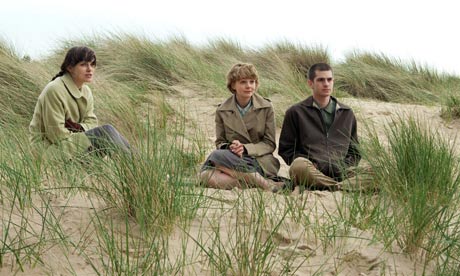
Mark Romanek has made a beautiful film out of one of the most loved and admired books of recent years. Understandably, much was expected of Never Let Me Go, but it hasn't clicked. It didn't even make the nominations for last night's Baftas. In America, where it opened in September, it can boast only of being the 161st biggest box-office success of the past 12 months. Critics and filmgoers have praised it vaguely but declared themselves both dissatisfied and baffled.
Yet it's not as though we're not told what's supposed to be going on. In a heavy-handed final communiqué, Carey Mulligan's Kathy H suggests that when our last hour looms, "maybe none of us really understands what we've lived through, or feels we've had enough time". For those who may have nodded off before the final reel, Romanek has spelt things out himself. "I wasn't making a sci-fi, I was making a love story," he told an interviewer, adding: "Since our lives are so short, it makes you change perspective about what's important."
OK then. The foreshortened lifespans of Kathy, Ruth and Tommy are meant to invest their loves, losses, mistakes and redemptions with heightened intensity, and thereby to inspire the rest of us to live our lives more heedfully.
The dialogue's fine, the cinematography's discreet and the acting's dazzling. All the same, for the purpose supposedly in hand, something is out of place. It's the device that truncates the youngsters' lifetimes. Something straightforward is all that ought to have been required for the job as specified. Perhaps the Earth could have been threatened by an asteroid still some decades away but too mighty to be disposed of even by the combined efforts of Sean Connery, Bruce Willis and Morgan Freeman.
Instead, our doomed heroes find their fate dictated not by implacable forces that are beyond their power to influence, but by the designs of their fellow human beings. This raises the question that's so perplexed and annoyed audiences. If this is a celebration of love, why don't the protagonists assert its power by rebelling against those intent on thwarting it?
Of course, the idea of clones created for their body parts comes from the book. Yet the book doesn't end with the film's clunky moral. We're left some scope to work out for ourselves the tale's true import. And if you ignore Kathy's own possibly misleading steer, you can find another meaning in this movie which, if it had been acknowledged, might have forestalled all the disappointment.
Love story though it may be, Never Let Me Go doesn't deal in grand passions. In fact, it's the everyday scale of the emotions depicted that lends them their significance. Like much else in the film, they serve to underscore what it is to be an ordinary human being, and why that's such a marvellous thing to be. It's the collision between this humanity and the systematised inhumanity which confronts it that lends the proceedings much of their poignancy. The main characters' fate isn't merely to die; it's also to live as the mere instruments of others.
Their condition hints at the wider exploitation of the many by the few that we every day take for granted. And once seen in this light, the trio's submissiveness becomes a vital element in the drama, not a plot defect.
On the big screen we're used to seeing the likes of Spartacus and Erin Brockovich overthrow their oppressors. On the whole, however, real life is different. The doomed youths sent over the top to pointless death at Passchendaele didn't turn on their officers. Our young unemployed don't besiege the hedge-fund offices of Mayfair. For the most part, our children accept the role in life they're accorded as uncomplainingly as the students of Hailsham.
The lackeys of capitalism compete to become employee of the month, just as the donors of Never Let Me Go take a pride in their donations. In both cases, the system has indoctrinated them so successfully that they've ended up perfectly willing to accept their part in an apparently unalterable scheme of things.
It's surely this that lends the film its uniquely affecting flavour. Never Let Me Go may indeed remind us that love is good and that life is short. However, wittingly or not, it also laments another heartbreaking reality. It's the acquiescence of the weak in their own exploitation by the strong.

